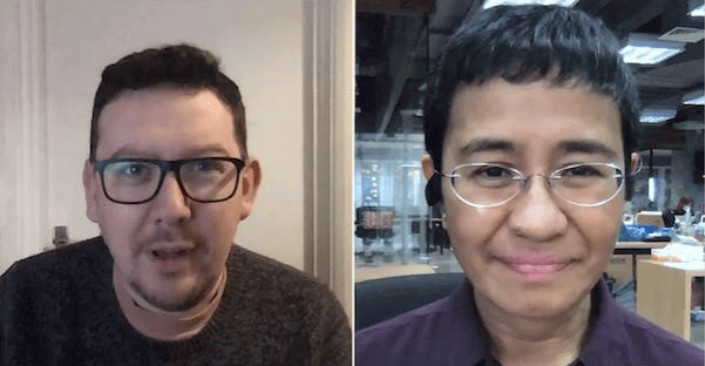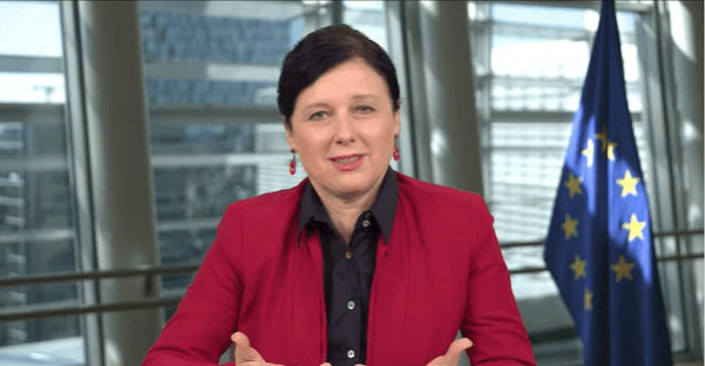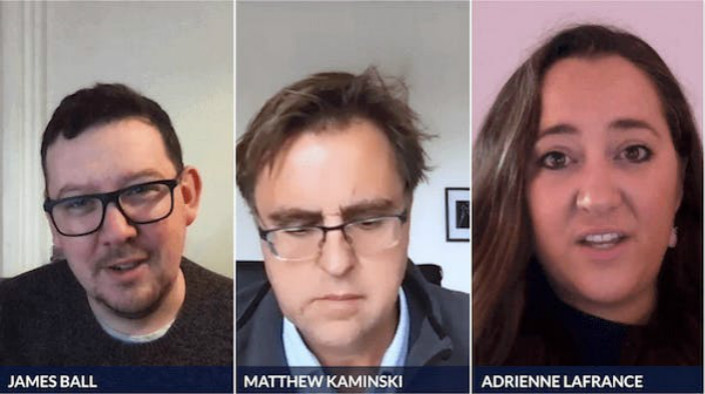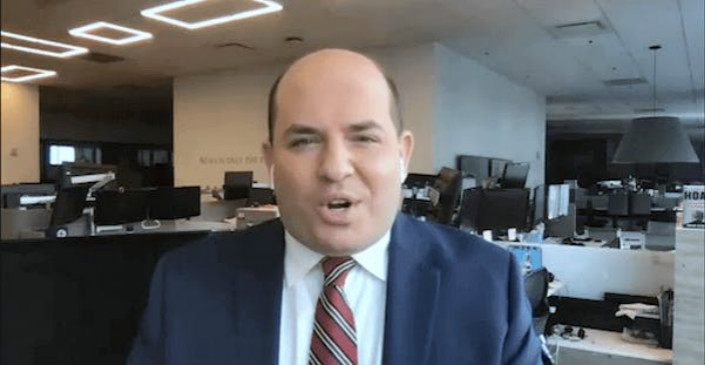2020 in misinformation: What we learned at Web Summit
This year has been defined by a global pandemic, a bitter election and an advancing ecological crisis. Making the situation worse is the “truth emergency” we’re currently experiencing. We gathered some of the world’s leading editors, journalists and politicians at Web Summit 2020, and asked them to share their hopes and fears for the future of media and, by extension, society.
Can press freedom survive? – Maria Ressa and James Ball
As expected, we heard several calls for social media to step up in the fight against fake news. One came from Rappler CEO Maria Ressa, who is currently facing up to 100 years in Filipino prison for a charge the UN has labelled part of a “pattern of intimidation”. She was accused of cyberlibel for a story published on Rappler in 2012, and is now awaiting her appeal. Maria accused social media companies of taking the benefits of an audience without the accountability. “They’ve taken over the gatekeeping roles from journalists. They can’t just take the money; they cannot abdicate responsibility, because this is what happens, globally, and the costs are severe.”
 |
Maria Ressa (right) and James Ball discussing the future of press freedom. Image: Web Summit |
She claimed that society is past debating who should decide the limits of free speech – it’s time to take action. Social media companies can no longer pass responsibility to others. “This whole thing of, ‘Well you don’t want us to be the arbiter of free speech’... Guess what. You already are. So you’re either going to be responsible or you’re not, and being responsible, unfortunately, will mean adding friction, adding guardrails, protecting the users”.
Defending democracy in Europe – Věra Jourová and Shona Ghosh
Věra Jourová, vice president for values and transparency at the EU Commission, also discussed the need to reach a solution with tech companies, saying “We cannot continue on the basis of gentleman’s agreements with Big Tech”. She made it clear that some of the burden lies with government, and that the EU Commission will play a significant role in the creation of a safer internet for Europeans. A huge part of this work will be striking the right balance between eliminating harmful content and protecting free speech.
“We really don’t want to damage the fabric or the principle of freedom of speech... We will address more the behaviour than the content itself. We will encourage also those who pay, the advertisers, to think over whether they want to support something that is potentially very harmful for society.”
 |
Věra Jourová, vice president of the European Commission for values and transparency. Image: Web Summit |
The fake news fight in 2020 – Adrienne LaFrance, Matthew Kaminski and James Ball
We had to address the elephant in the misinformation room. On December 3, Adrienne LaFrance of the Atlantic and Matthew Kaminski of Politico discussed the information war that characterised the recent US election. When asked who’s winning, Adrienne answered: “There certainly is a war, but I think there are many factions and no one’s winning, possibly. Or people who hope for chaos are winning, whoever that may be... I don’t think journalists or citizens are winning right now.”
Of course, it’s not just social media v media publications. Journalists essentially decide the version of the truth that the public hears, and Matthew Kaminski reiterated the basics of journalistic responsibility. “It’s probably time for us to come back to first principles and to think ‘Ok, what are we trying to do? We are trying to report what goes on dispassionately; we’re trying to tell people what’s taking place behind the curtain. We are not partisan; we don’t have a team’...The path for journalism that I find appealing is that we’re just here to chronicle; to understand; to reveal.”
 |
Adrienne LaFrance, Matthew Kaminski and James Ball discuss ‘The fake news fight in 2020’ |
He also encouraged us to give the public the credit it deserves, and remember that people can think for themselves – a point that’s often forgotten in misinformation and disinformation debates. “There’s an assumption that readers and citizens are lemmings, and I think that there is an interesting debate around, you know, how much does disinformation really matter? How many minds does it really change – or does that sort of misinformation find a very ready audience in an echo chamber that believes that [misinformation] in any case, and doesn’t actually move the needle?”
Reporting a truth emergency – Brian Stelter and Brian Morrissey
Speaking earlier today, Brian Stelter also gave the public the benefit of the doubt, but acknowledged a growing minority that doesn’t want to face the truth. Brian is chief media correspondent and anchor of Reliable Sources on CNN, a show that analyses media coverage itself. It goes behind the scenes to look at the way the news is made, giving him unique insight into the bias and polarisation of US media.
“The truth is under assault. But here is where I’m a little more optimistic. I think most Americans, and most people around the world, do want to know what is true... They don’t want to fall for lies and smears and false news. People don’t want to be fooled; most people don’t want to be fooled... However, there is a sizeable minority that prefers to live in a fantasy land; that prefer to live in a fictional universe”.
He was a little more emphatic about the role of journalists, claiming that journalists should not only share the truth, but actively call out those who are lying. “It’s not partisan for journalists to defend decency and democracy and truth. In that area, when we’re in a truth emergency, the anchors need to stand up, reporters need to stand up, and speak very clearly, and call out the liars and the smear artists who are trying to distort reality and confuse the public.”
 |
Brian Stelter, chief media correspondent and anchor of Reliable Sources, CNN, speaking at Web Summit 2020. Image: Web Summit |
He went on to lay out his philosophy in a simpler way: “If you tell me it’s raining and I can see it’s sunny, then I need to call that out. And if I pretend like you might be right, I think I’m part of the problem.”
Speaking about rumours of Trump’s next moves, Brian ended by casting doubts on his following going forward. It may seem like half of America will stand by him, but Brian thinks his support will shrink in the coming months. “I don’t think 73 million people want to sign up for Trump TV or sign up for a Trump Netflix service. However, I do think three million would; maybe seven million would. I just don’t think every Trump voter necessarily wants to be on the Trump train all the time. But maybe I’m wrong. Let’s meet up here in a year and we can talk about it.”
These are just some of the perspectives shared by media and political leaders at Web Summit 2020. We’ll meet you in Lisbon next November for more insights. Pre-register for Web Summit 2021 here.
Disclaimer:
Sponsored content: The views expressed in the post are those of the author.


